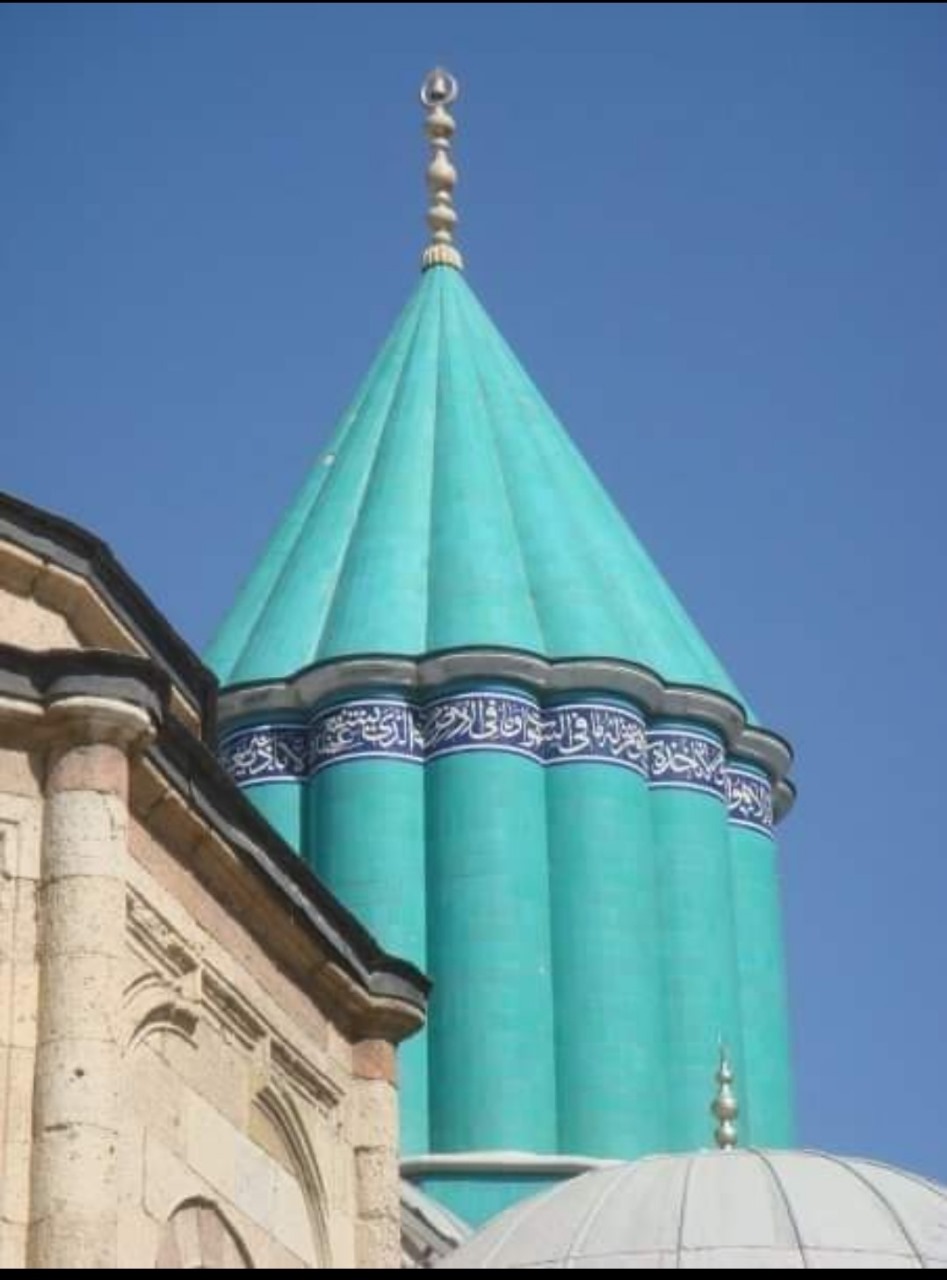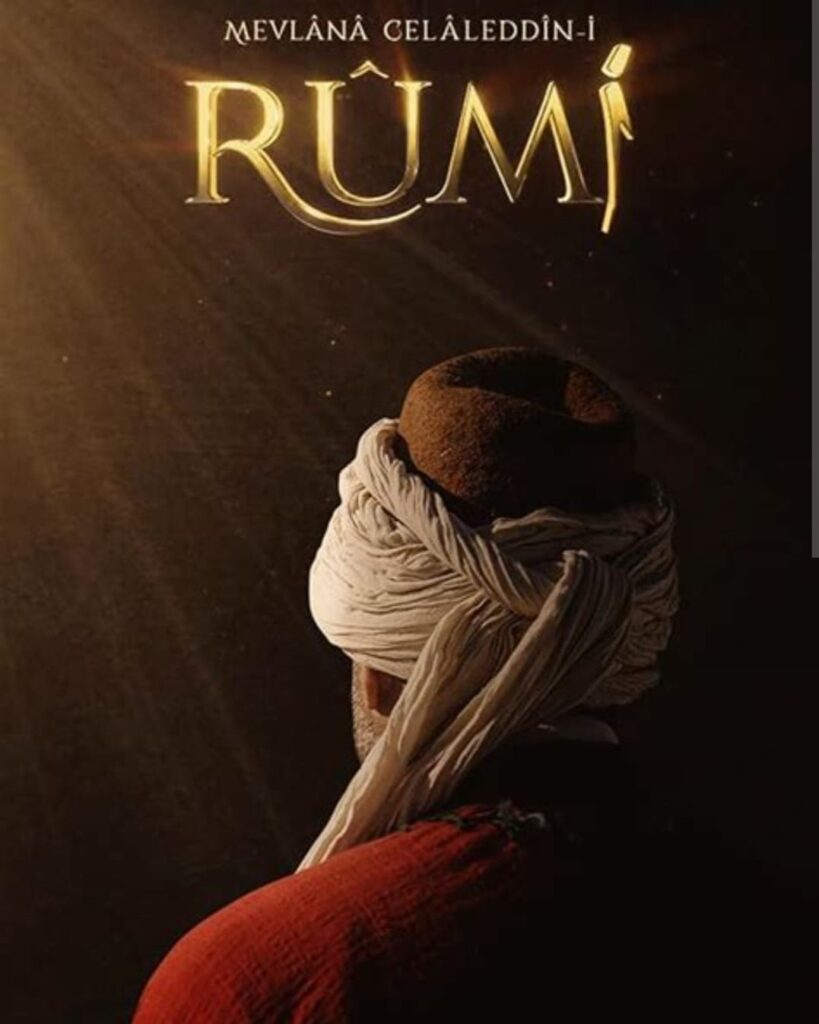Hazrat Yusuf and Mirror
Notes
- Know more about Hazrat Yusuf (as): The Story of Prophet Yusuf (عَلَيْهِ ٱلسَّلَامُ) – My Islam
- Mevlana illustrates this answer by several examples teaching us not to fear hardships, for they are the tests that refine and elevate us, shaping us into better versions of ourselves. He draws profound analogies from nature to illustrate this truth.
He speaks of pearls—precious gems that are ground into fine powder, yet this powder becomes a remedy for ailments of the eyes and the heart. Similarly, seeds are buried beneath the earth, seemingly lost, but they emerge as wheat crops, full of life and potential. The crop, once harvested, undergoes yet another transformation: the wheat is ground into flour, baked into bread, and then bitten and chewed. What appears as destruction at each stage is, in fact, a process of transformation, culminating in the bread becoming a source of nourishment and energy for the hungry. Through these metaphors, Mevlana highlights the deeper purpose of trials. Hardships, like the grinding of pearls or the burying of seeds, add value to our lives. They teach us resilience, patience, and humility. Most importantly, they guide us to surrender ourselves to the greater purpose of our creation, aligning our will with the Divine.
In every challenge lies an opportunity for growth, a chance to fulfill our potential and draw closer to Allah. As the Qur’an says, “Indeed, with hardship comes ease” (94:6), reminding us that every trial is a step toward a greater good.
This teaching reflects a profound Sufi principle: Baqa (subsistence). Mevlana emphasizes that when one’s being is annihilated (Fana) in Allah, they transcend their limited self and ascend to another level of consciousness. This state is not an end but a transformative step in the spiritual journey. Emerging from Wajd (ecstasy), the Sufi moves beyond personal spiritual experiences to take on a higher responsibility—the mentorship and guidance of others.
The lesson underscores an essential truth in Sufism: neither Fana nor Wajd is the ultimate destination. These states are preparatory, enabling the seeker to shed ego and align fully with Divine Will. The purpose of life for a Sufi lies in achieving Baqa—a state of sustained connection with the Divine while living actively in the world. In Baqa, the Sufi regains consciousness and becomes a source of wisdom, compassion, and guidance for others, helping them along the path of spiritual enlightenment.
This awakening of the higher self transforms the Sufi into a beacon of light for society. Their existence benefits countless lives, and their legacy endures for centuries. Those who reach this station exemplify the highest ideals of servitude and Divine love, embodying the Qur’anic verse, “And We have made you a community that is just and balanced, so that you may be witnesses over mankind” (2:143). Thus, Baqa is not only a personal achievement but a gift to humanity—a state where the Sufi’s subsistence in Allah becomes a source of eternal influence, inspiring generations long after their physical presence has faded.
3.Rumi quotes the Qur’an: (Fatah Pic insert here)
Translation: Muḥammad is the Messenger of Allah. And those with him are firm with the disbelieversa and compassionate with one another. You see them bowing and prostratingb ˹in prayer˺, seeking Allah’s bounty and pleasure. The sign ˹of brightness can be seen˺ on their faces from the trace of prostrating ˹in prayer˺. This is their description in the Torahc And their parable in the Gospel is that of a seed that sprouts its ˹tiny˺ branches, making it strong. Then it becomes thick, standing firmly on its stem, to the delight of the plantersd—in this way Allah makes the believers a source of dismay for the disbelievers. To those of them who believe and do good, Allah has promised forgiveness and a great reward.


A window to Mathnavi Maulvi Ma’nvi
Translation and Commentary Seema Arif
Further Links for Rumi


Explanation of footnotes
a) This passage and the following should be understood in their historical context. The Muslims were urged to be firm with the Arab pagans and their allies who were at war with Muslims at that time. Otherwise, Islam encourages Muslims to treat peaceful non-Muslims with kindness and fairness. See 60:8-9.
b) Prostration means lying down on one’s face (i.e., touching the ground with the forehead and nose while resting on knees and flat palms of both hands) as an act of prayer and submission to Allah. Here it means total submission to the call of Allah.
c) In Deuteronomy 33:1-3, ˹Moses proclaimed: “The Lord came from Sinai. Rising from Seir upon us, he shone forth from Mount Paran, accompanied by a myriad of his holy ones, with flaming fire from his right hand for them. Indeed, lover of people, all of his holy ones are in your control. They gather at your feet to do as you have instructed. [sic]” Paran is a mountain in Mecca.
d) In Matthew 13:3-9, “˹Jesus˺ spoke many things to them in parables, saying, “Behold, the sower went out to sow. … ˹A seed˺ fell on the good soil and yielded a crop, some a hundredfold, some sixty, and some thirty. “He who has ears, let him hear.”
By quoting these ayahs, Rumi has subtly emphasized the importance of cultivating a group of enlightened and purposeful individuals. Initially, this effort might invite criticism and ridicule, with skeptics viewing the resources and time spent as wasteful. However, when the “crop” matures—when a disciplined and prepared group emerges, ready to take meaningful social action—their transformative impact will leave observers in awe. True societal change becomes visible only through sacrifice, perseverance, and enduring hardships.
The wonder crop highlights the qualities of the righteous, describing them as individuals who strive for the unity of Muslims and refrain from sowing discord or confusion among them. These individuals nurture and strengthen the seed of faith in the hearts and minds of others. Ibn Kathir elaborates on this idea, likening the righteous to the Companions of Allah’s Messenger: they offered unwavering support, aid, and victory to the Prophet, much like how a strong shoot fortifies and sustains a growing plant.
Mevlana underscores the necessity of raising such a group—individuals willing to dedicate themselves selflessly to the betterment of their nation. This is not merely about education but about instilling moral and ethical principles that guide transformative efforts. As Michael Fullan aptly states, “Change has a moral purpose.” However, it is imperative that each nation defines its own moral purpose, tailoring it to its unique values and aspirations, to drive meaningful and sustainable progress.
After narrating his tale, Hazrat Yusuf (AS) turned to his friend and gently asked, “What gift have you brought for me?”
( Copyright 2024 ) Dr. Seema Arif All rights reserved.
All material on this page is Seema Arif’s original writing. Using it in any form of publication and print media without prior permission will be considered a violation of rights. When quoting research papers, proper referencing should be used.






